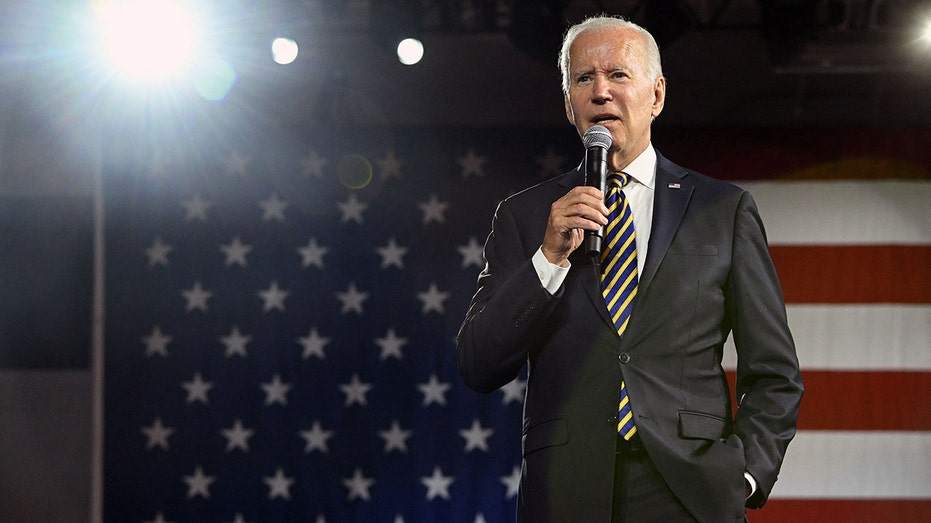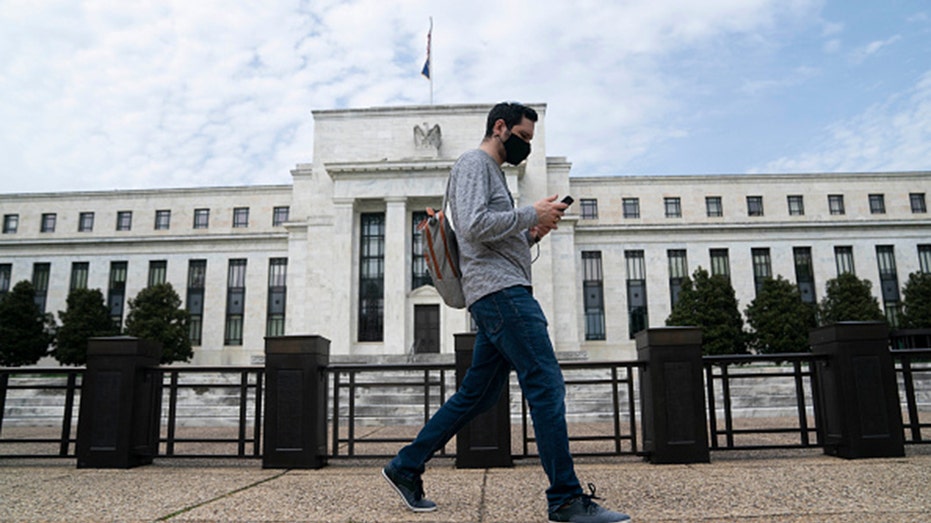Biden administration on the defensive as dismal economic report looms
Economists expect GDP to shrink in the second quarter, potentially signaling a recession
Best sectors to buy in a recessionary environment
Hennion & Walsh Asset Management president and CIO Kevin Mahn analyzes Wall Street's volatile day on 'The Claman Countdown.'
The Biden administration is trying to get ahead of another potentially brutal economic report that comes out next week, which is expected to show the U.S. economy shrank again in the spring — potentially signaling a recession.
The Commerce Department is set to release the highly anticipated second-quarter gross domestic product reading Thursday morning, which is expected to show that growth fell 1.6% in the period from March to May.
The GDP, the broadest measure of goods and services produced in the U.S., already shrank in the first quarter of the year by 1.6%, marking the worst performance since the spring of 2020, when the economy was still deep in the throes of the COVID-induced recession.
Recessions are technically defined by two consecutive quarters of negative economic growth and are characterized by high unemployment, low or negative GDP growth, falling income and slowing retail sales, according to the National Bureau of Economic Research (NBER), which tracks downturns.
WHY IS INFLATION STILL SO HIGH, AND WHEN WILL IT START TO COOL?

President Biden speaks about the economy and the final rule implementing the American Rescue Plans Special Financial Assistance program, protecting multi-employer pension plans, at Max S. Hayes High School in Cleveland, Ohio, on July 6, 2022. (SAUL LOEB/AFP via Getty Images / Getty Images)
Should the economy decline in the second quarter, it could meet the technical criteria for a recession, which requires a "significant decline in economic activity that is spread across the economy and that lasts more than a few months." Still, the NBER — the semi-official arbiter — may not confirm it immediately.
The White House is now seeking to redefine what constitutes a recession before the data release, which is likely to show two consecutive periods of shrinkage. In a new blog post, White House Council of Economic Advisers chair Cecilia Rouse and member Jared Bernstein argued the economy is nowhere near a downturn as defined by the NBER.
"While some maintain that two consecutive quarters of falling real GDP constitute a recession, that is neither the official definition nor the way economists evaluate the state of the business cycle," they wrote, noting that a "holistic" approach takes into account the labor market, consumer and business spending, industrial production and incomes. "Based on these data, it is unlikely that the decline in GDP in the first quarter of this year — even if followed by another GDP decline in the second quarter — indicates a recession."
There are growing fears on Wall Street that the Federal Reserve will trigger a downturn as it raises interest rates at the fastest pace in three decades as it races to catch up with runaway inflation.

A man wearing a mask walks past the U.S. Federal Reserve building in Washington on April 29, 2020. (Xinhua/Liu Jie via Getty Images / Getty Images)
Fed policymakers approved a 75-basis point interest rate hike in June — the first since 1994 — pushing the federal funds target range to 1.5%-1.75%. Another hike of that magnitude is on the table in July amid signs of stubbornly high inflation, Chairman Jerome Powell told reporters after the meeting, prompting investors to reassess the economic outlook.
Hiking interest rates tends to create higher rates on consumer and business loans, which slows the economy by forcing employers to cut back on spending. Mortgage rates are already approaching 6%, the highest since 2008, while some credit card issuers have ratcheted up their rates to 20%.
Although Powell has said the central bank is not trying to induce a recession, he has not ruled out the possibility of a downturn and has admitted the odds of a successful "soft landing" are getting narrower.
CLICK HERE TO READ MORE ON FOX BUSINESS
"There’s a path for us to get there," Powell told reporters at a post-meeting press conference in June, referring to a soft landing. "It’s not getting easier. It’s getting more challenging."





















